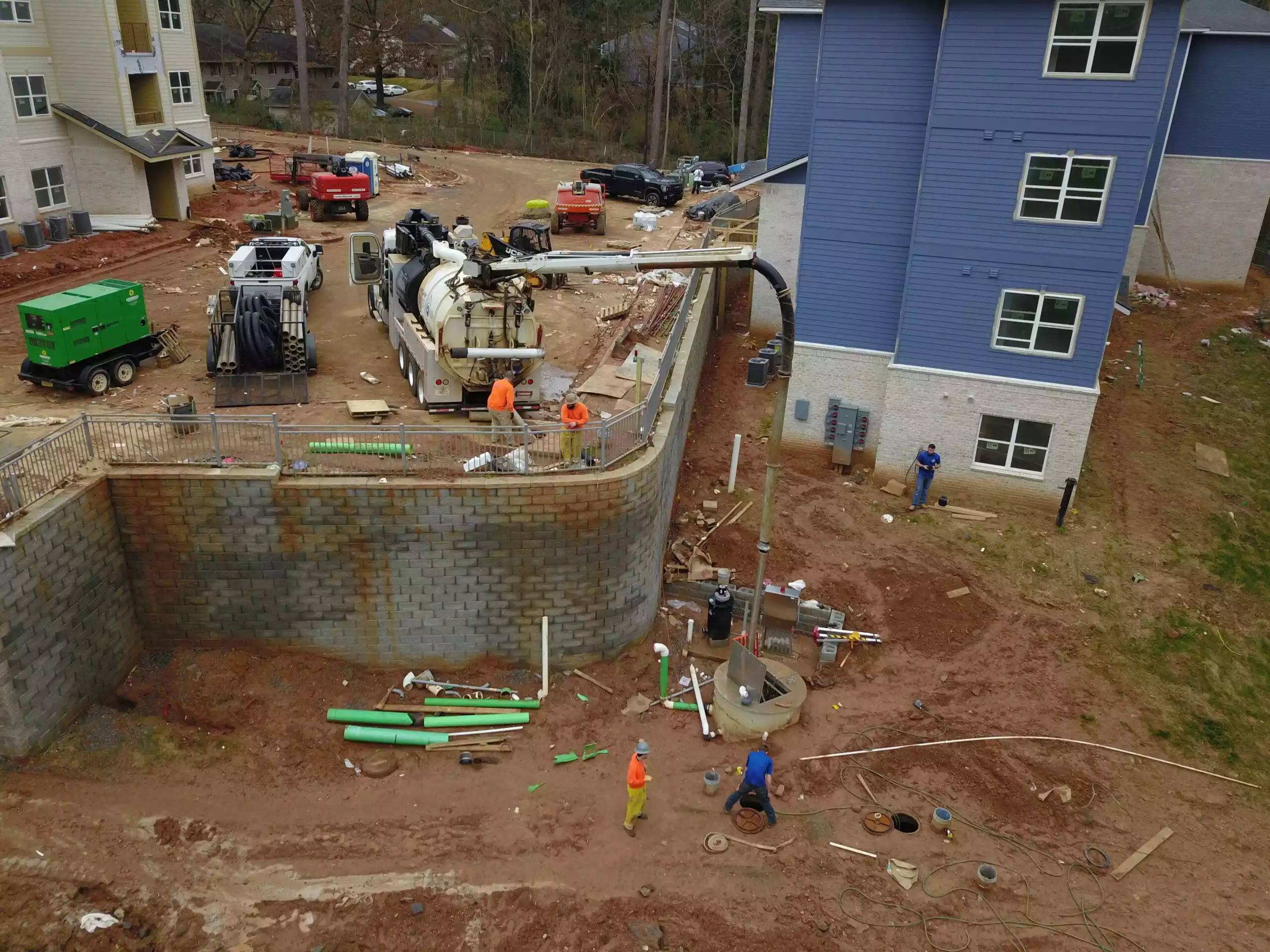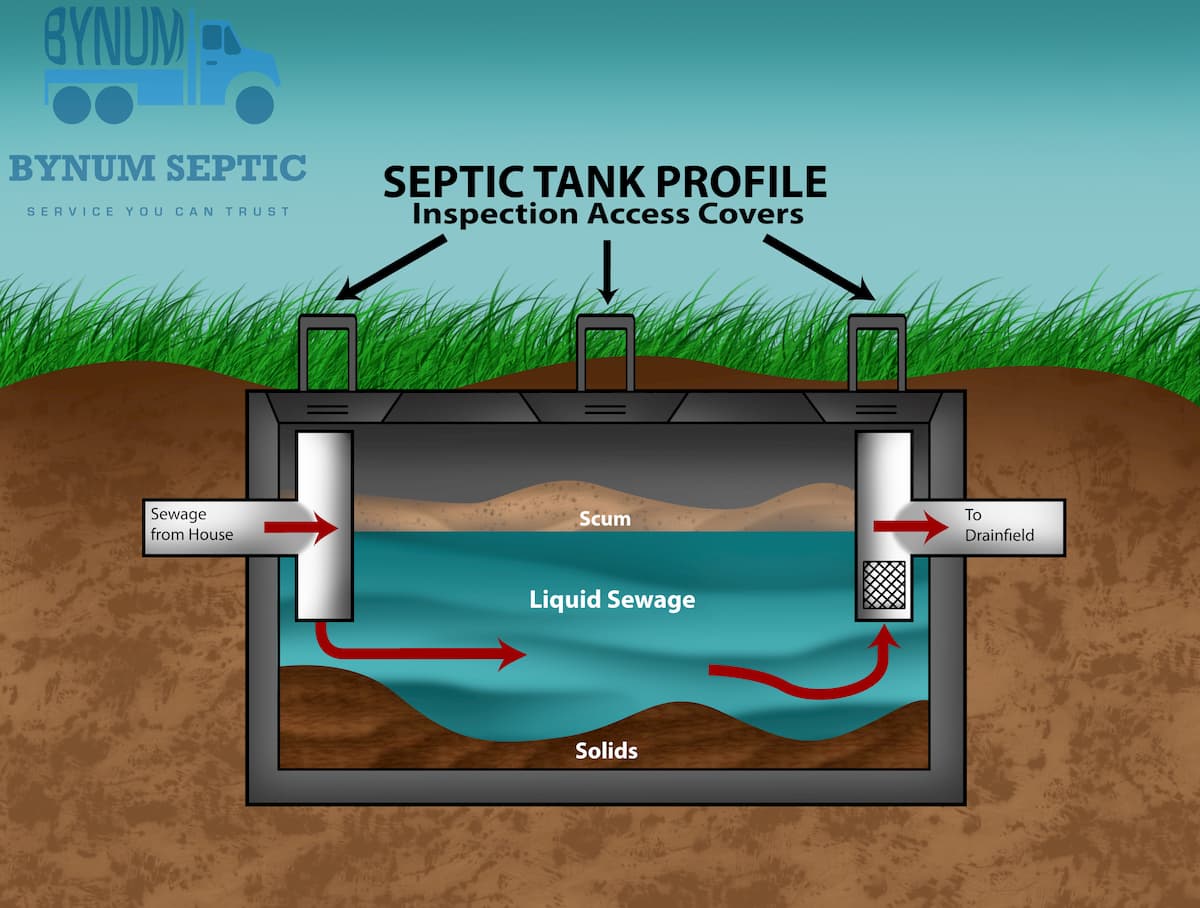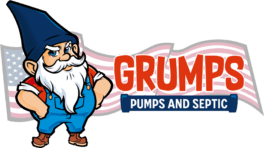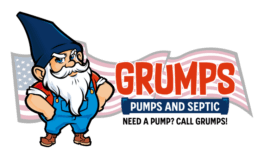
Septic Tank Pumping and Cleaning Service
An essential part of maintaining your septic system is septic tank pumping. Grump’s Pumps and Septic is a premier provider of septic system service, and this service is guaranteed to extend the life of your septic system. Our qualified team members have extensive experience with septic tank pumping, and we’re confident that we can provide unparalleled septic tank cleaning services near Gainesville, GA.
Septic Tank Pumping: What It Is And Why It Matters
When solid waste exits your home, it makes its way into the septic tank, where it sinks to the bottom of the tank. The bacteria in the septic tank can only break down organic solids, so the remaining inorganic solids turn into sludge. This sludge accumulates in the septic tank over time and must be removed by septic tank pumping services. Without desludging a septic tank through regular septic tank pumping, sludge will eventually overflow into the drain field and cause blockages, backups, and costly repairs.
This is an emergency that you don’t want on your hands! So instead of waiting for your septic tank to backup or malfunction, schedule septic tank pumping every 3-5 years with a local septic company like Grump’s Pumps and Septic. We’d love to help you set up a maintenance plan to ensure the longest lifespan for your septic system.
When To Schedule Septic Tank Pumping
At Grump’s Pumps and Septic, we utilize state-of-the-art camera technology to thoroughly inspect your septic tank and accurately measure the amount of accumulated scum. We can then provide expert recommendations for any necessary septic tank cleaning services based on our findings. Our team is dedicated to ensuring that your septic system functions optimally and efficiently, and we take great pride in offering top-quality septic services to our valued customers.
Signs your septic tank might be full:
If you notice any of the following, you might need septic tank pumping.
- Foul odors around the septic tank
- Greener and taller grass around the septic tank
- Slowly draining bathtubs, sinks, and showers
- Gurgling noises coming from the plumbing system
- Damp spots near the drain field area
- Water and waste backing up from toilets, sinks, and drains
Routine septic tank pumping services and maintenance will extend the life of your septic system. Contact us today for unrivaled septic tank services near Gainesville, GA!

FOG: Why It’s Harmful To Your Septic Tank
FOG refers to fats, oils, and grease that make their way into the septic tank, mainly from kitchen drains and garbage disposals. FOG results in a layer of scum that floats on top of the wastewater in the septic tank. The septic tank’s bacteria cannot break down FOG. Scum in a septic tank can potentially travel to the drain field, causing clogs and buildup in the pipes. The only way to remove scum from a septic tank is with septic tank pumping.
If you regularly put substances like these down the drain or it’s been more than 5 years since your last septic tank pumping, then it’s time to schedule an appointment. Delaying septic cleaning can cause significant damage to your septic system and may result in a septic backup. Don’t wait for a septic emergency! Contact Grump’s Pumps and Septic for fast, efficient septic tank services near you.
Foods That Turn To Scum In Septic Systems
- Fats – bacon, hamburger, sausages, etc.
- Oils – veggie oil, olive oil, deep-frying oils, etc.
- Grease – from meats and cooking
- Dairy – milk, butter, cheese, etc.
- Processed Foods – chips, crackers, etc.
Emergency Septic Tank Pumping Service Near You
We know that not all septic emergencies occur during regular business hours. That’s why our team at Grump’s Pumps and Septic is available 24/7 for emergency septic tank pumping and repairs near you. We work around your schedule to ensure convenient and thorough septic tank pumping when needed. Call us now if you face a septic emergency near Gainesville, GA.
Contact Grump’s Pumps and Septic for Reliable Septic Tank Pumping
Septic tank cleaning and maintenance are vital to the overall health of your septic system. Grump’s Pumps and Septic is eager to provide you with the best septic tank pumping services in Gainesville, GA. Contact us today with questions or scheduling information.
FAQs
A family that uses the garbage disposal dumps approximately 50% more solid waste down the drain than a family without the garbage disposal. This excess waste accumulation in the septic tank due to garbage disposal use requires septic tank pumping twice as often, costing time and money. Avoid putting food particles and FOG (fats, oil, and grease) down your drain; try composting instead or throw waste in the trash.
How much sludge can a septic tank have before septic tank pumping is needed?
Sludge is the solid waste that cannot dissolve in the septic tank. It settles on the bottom of the tank and is only removed by professional septic tank pumping. Your septic tank is ready for septic tank cleaning when the sludge reaches 12 inches from the bottom of the tank.
What factors influence how often I need septic tank pumping?
Factors that influence how often to pump your septic system:
- Household size
- Total wastewater generated
- The volume of solids in wastewater
- Septic tank size


